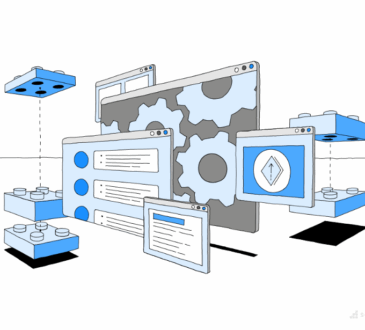
Balancing work and study can be tough, especially when you’re pursuing a technical field like cybersecurity. With the rising costs of tuition and living expenses, many students are forced to work while studying to cover their bills. Juggling both responsibilities can be challenging, but with the right strategies in place, it’s entirely possible. In this article, we’ll explore several tips that will help you manage your work and studies more effectively while earning your cybersecurity degree.
Find Work That Aligns with Your Degree Program
One of the most effective ways to balance work and study is by choosing a job that is closely related to your degree. If possible, look for a role in the computer science field or another tech-related area. Not only will this help you apply the skills you are learning in your degree program, but it will also give you valuable experience that can enhance your resume and build your career in the long run.
For example, working in roles like IT support, network administration, or cybersecurity analyst positions (even at an entry level) can provide practical knowledge that directly relates to your coursework. This will allow you to reinforce the lessons you’re learning in real-time and give you a head start in your future career. Plus, working in the same field as your degree can make it easier to transition into a full-time cybersecurity role once you’ve completed your studies.
Organize Your Life and Prioritize What Matters
Managing both work and study means you need to stay organized. Time management becomes essential when you have multiple responsibilities. It’s important to prioritize your commitments and figure out what needs your attention first, especially when things get overwhelming.
Your job and studies are both important, but there will be times when you’ll need to make tough decisions about where to focus your energy. For instance, if you have a big assignment due, it might need to take precedence over a shift at work. Similarly, if you’re facing a family emergency or personal issues, you might need to adjust your schedule to accommodate that. Learning to make decisions on what gets your attention first—and what can wait—is key to maintaining balance while pursuing both work and your degree.
Create a Detailed Weekly Schedule
Scheduling is one of the most powerful tools for managing both work and study. It might seem obvious, but creating a well-planned weekly schedule goes beyond just listing your work shifts and class times. A good schedule should also include time for studying, practicing what you’ve learned, family or social activities, and some relaxation. Yes, relaxation is essential too!
When your days are packed with work, classes, and assignments, it’s easy to forget to take care of yourself. Scheduling time for things like exercise, unwinding with friends, or just having some alone time can make a huge difference in reducing stress. A well-structured plan will help you stay on top of your responsibilities and ensure that you don’t burn out along the way.
Rely on Your Support System
You don’t have to carry the load on your own. Having a strong support system is one of the best ways to maintain your well-being while juggling school and work. This support can come from family, friends, coworkers, or even classmates who understand what you’re going through.
If you’re feeling stressed or overwhelmed, don’t hesitate to lean on those around you. Whether it’s asking someone to help with household chores, making meals to save time, or offering emotional support, your loved ones can play a crucial role in helping you manage your busy schedule. In addition, if you need help with studying, forming a study group with classmates or colleagues can also be beneficial. Having a support network makes it easier to stay motivated and reduce the stress that comes with balancing work and school.
Stay Connected Through Networking and Communication
Networking is an essential part of both work and school. Building connections with people in your workplace, at school, and in your broader community can open doors to new opportunities. It’s not just about getting emotional support—it’s about staying informed and accessing new resources that can help with your studies or job.
For example, talking to your professors about your job and class schedule can ensure they understand your situation and may even lead to accommodations if necessary. Likewise, discussing your degree program with your employer can help them understand your goals and give you some flexibility when balancing work with school. Regular communication with both your superiors and your professors will keep everyone on the same page and help you avoid misunderstandings.
Keep Your Long-Term Goals in Focus
It can be easy to get bogged down by the day-to-day challenges of balancing work and study, but it’s important to keep your long-term goals in mind. Whether you’re working toward earning your degree, landing your first full-time job in cybersecurity, or aiming for a specific career role, having clear goals will help you stay motivated.
There will be times when it feels like progress is slow or when things get difficult, but remember that every small step you take brings you closer to achieving those goals. Ask yourself regularly: “What do I want to do after I finish my degree? How do I want to grow in my current job?” Keeping those questions in mind will help you stay focused, even when things get tough. Over time, you’ll see how the hard work you’re putting in now will pay off in the future.
Conclusion: Start Your Cybersecurity Career Today
Completing a cybersecurity degree while working is no small feat, but with the right approach, it’s entirely possible. By choosing a job related to your studies, staying organized, creating a solid schedule, leaning on your support system, networking, and keeping your long-term goals in sight, you’ll be better equipped to balance both responsibilities.
Every day is a step closer to mastering your craft in cybersecurity and building the career you want. It may not be easy, but the effort will be worth it. Keep your focus on the finish line, and you’ll be able to balance work and school successfully, earning your degree while preparing for a fulfilling career.




